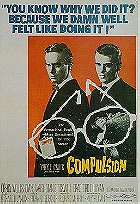A stunning bit of picturesque travelogue and anodyne emotionally, Three Coins in the Fountain is a rusty bit of classic film-making and nothing more. You know the general plot, American girl meets handsome foreign boy, complications, then happily ever after. Just times that basic plot premise times three, and know that Three Coins provides ample opportunity to throw every single clichéd story idea you can think of into this pretty but shallow melodrama.
Certain stories work better than others, particularly Dorothy McGuire and Clifton Webb as a pair of older lovers with time not on their side, than others, Maggie McNamara is stiff but gorgeous and nothing more. It’s a shame that McNamara is so routinely locked in place, her acting style is 100% 1950s melodrama and its aged like milk, since her main screen partner is the charming Louis Jourdan, impossibly gorgeous and suave here. Jourdan knows to liven up this simplistic material with some spark of life, but McNamara just plays like a Xerox of Audrey Hepburn that’s several generations old.
Inexplicably, this was nominated for Best Picture over stellar work like Sabrina and Johnny Guitar. Even stranger, it won Oscars for Best Song and Best Color Cinematography over competition that included “The Man That Got Away” from A Star is Born and in the former and Rear Window in the latter. It’s one of those head-scratching pieces of trivia that makes you stare at the entire awards giving concept with a confused tilt and side-eye.
It’s a vapid viewing experience to be sure, but that doesn’t mean it’s not without enjoyment. Three Coins is a trifle, but it never pretends to be otherwise throughout its two hour stretch. After all, this is a film about Rome that positions the city less as an actual place than as the magical idea of one. And it is completely without real tension, dramatic or emotional, throughout so much of the running time that we coast along vistas, clothes, and all the accoutrements of the European glitterati that it almost begins to feel like substance.
 Login
Login
 Home
Home 95 Lists
95 Lists 1531 Reviews
1531 Reviews Collections
Collections
 0 comments,
0 comments, 







